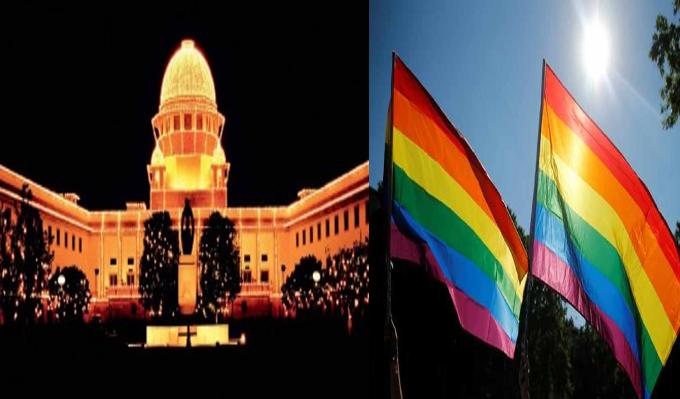
The Supreme Court today referred a batch of pleas seeking legal validation of same-sex marriage to a 5-judge constitutional bench. The court will start hearing the batch of cases on April 18.
A bench led by Chief Justice of India DY Chandrachud on March 13 passed the order after hearing legal propositions from lawyers appearing for various parties who have filed petitions. Appearing for the government, Solicitor General Tushar Mehta submitted that the recognition of same-sex marriage is a function of the parliament as many aspects are to be looked into.
In an affidavit opposing the batch of pleas seeking legal validation of same-sex marriage, the government stated that the fundamental right to life and liberty can’t include any implicit approval of same-sex marriage.
The government said that at this stage, it is necessary to recognize that while there may be various other forms of marriages or unions or personal understandings of relationships between individuals in a society, the State limits recognition to the heterosexual form.
It further stated that “The State does not recognize these other forms of marriages or unions or personal understandings of relationships between individuals in a society, but the same is not unlawful.”
The Centre also said that the fundamental right under Article 21 is subject to the procedure established by law and the same cannot be expanded to include the fundamental right for a same-sex marriage to be recognized under the laws of the country, which in fact mandate the contrary.
The government said that “It is submitted at that there can be no fundamental right for recognition of a particular form of social relationship. While it is certainly true that all citizens have a right to the association under Article 19, there is no concomitant right that such associations must necessarily be granted legal recognition by the State. Nor can the right to life and liberty under Article 21 be read to include within it any implicit approval of same-sex marriage.”
Further adding in the Supreme Court verdict of 2018, the only change is that persons of the same sex can engage in consensual sexual intercourse without being held criminally liable under Section 377 of the Indian Penal Code.
It said that “This, and no more than this, is what has been held in that case. While the aforesaid conduct has been decriminalized, it has by no means been legitimized. In fact, the reading of Article 21 in (the 2018 verdict) expressly does not include marriage, as seen from the cited extract.”
Referring to the 2018 verdict, the government said that the dictum of it doesn’t extend the right to privacy to include a fundamental right in the nature of a right to marry by two individuals of the same gender in contravention of prevailing statutory laws.
It said the observations in the 2018 verdict can’t be treated as conferring a fundamental right of being recognized in marriage under Indian personal laws whether codified or otherwise.
It said that “It is submitted that even if such right is claimed under Article 21, such right can be curtailed by the competent legislature on permissible constitutional grounds including legitimate state interest. It is submitted that there cannot be an untrammeled right under Article 21 and cannot override other constitutional principles.”
The Centre stated that the principles of legitimate state interest as an exception to life and liberty under Article 21 would apply to the current case and the statutory recognition of marriage as a union between a “man” and a “woman” is actually linked to the recognition of the heterogeneous institution of marriage and the acceptance of the Indian society based upon its own cultural and societal values which are recognized by the competent legislature.




